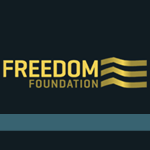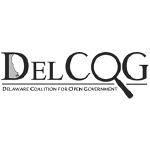|
|
NFOIC wants to hear from you!FOI InSight is a publication from the National Freedom of Information Coalition featuring and aggregating news and analysis about FOI and open government issues, and delivering items of interest to and about our state member organizations, partners and stakeholders. We welcome suggestions for future newsletters and our FOIA Events Calendar, and ask that you send us ideas for and links to news about your organization and other FOI and open government-related items and events. |
|
FOIA Lawsuits & Litigation
|
|
U.S. Supreme Court to hear Va. FOIA case re: out-of-state-requests
|
|
The U.S. Supreme Court announced that it will hear the appeal of Mark J. McBurney and Roger W. Hurlbert, both non-Virginians, who were denied Freedom of Information requests because they are not citizens of Virginia. McBurney and Hurlbert are asking the court to rule the citizens-only provisions of the Virginia Freedom of Information Act unconstitutional. NFOIC has supported the appellants with other media groups by filing amicus brief.
|
|
 |
|
The Freedom Foundation challenging Gov. Gregoire’s executive privilege
|
 |
The Washington state Supreme Court heard oral arguments on Sept. 20 on whether Gov. Chris Gregoire can claim an “executive privilege” as a legitimate reason to conceal records from public scrutiny. The case was brought in April, 2011 by The Freedom Foundation, an Olympia, Wash.–based member of the National Freedom of Information Coalition. After the debate on Sept 20, the Supreme Court didn't announce when the ruling will come out, but court decisions usually come six to nine months after a hearing. NFOIC has joined in filing amicus brief in the case.
|
|
|
Delaware Chancery Court appeals ban on private arbitration
|
|
The Delaware Court of Chancery filed a notice of appeal with the U.S. 3rd Circuit Court of Appeals to reinstate its controversial private arbitration process, which, according to a court decision, is amounted to a civil non-jury court proceeding and must be open to the public. The Delaware Coalition for Open Government, supported by a number of media organizations, won the previous lawsuit.
|
|
 |
|
California First Amendment Coalition denied intervention in Apple v Samsung lawsuit
|
 |
The California-based First Amendment Coalition asked the U.S. Court of Appeals for permission to intervene the Apple v. Samsung patent infringement lawsuit in order to advocate for public disclosure of confidential financial records that both Apple and Samsung filed in court under seal. However, the coalition’s motion was denied by the court, holding that the coalition could prevail “only in an exceptional case for imperative reasons.”
|
|
|
|
|
The D.C. Open Government Coalition sues D.C. Council over use of personal email accounts
|
|
The D.C. Open Government Coalition has filed suit against the D.C. Council, claiming that legislators' use of personal email accounts to conduct official business constituted an end-run around the public's right to dig into what the city's legislative body is up to. The coalition says that D.C. must keep pace with other states, which have said that official business—whether conducted via official or personal email accounts—is subject to disclosure.
|
|
 |
|
The Alaska Supreme Court says business emails on private accounts are public records
|
|
The Alaska Supreme Court issued a decision that state employees can’t use private e-mail accounts to hide their work communication from public record laws. The case dates back to the Sarah Palin Administration and addresses the tricky question of whether the state records law is keeping up with communication technology.
|
|
|
Transparency committee asks for recommended changes in Maryland Open Meetings Act
|
|
Maryland state Senator Bill Ferguson asked reporter Len Lazarick at meeting of the Joint Committee on Transparency and Open Government to prepare recommendations for changes in the Open Meetings Act.
|
|
|
Personal calendar of San Diego mayoral candidate reveals meetings with newspaper owner
|
|
San Diego mayoral candidate Carl DeMaio keeps a private calendar that shows he had appointments with newspaper owner Doug Manchester in December and in May, despite his office insisting no records of communication exist between the two men.
|
|
|
The New Mexico Foundation for Open Government holds its annual Dixon Luncheon
|
 |
The New Mexico Foundation for Open Government held its annual Dixon lunch Oct. 3 in Albuquerque. The group honored four people who represent what is good in government, journalism, politics and the legal world. Several of the people who nominated the winners spoke about how access to information and government transparency has changed in the past 30 years.
|
|
|
NFOIC's State FOIA Friday
|
|
Be sure to check out the State FOIA Friday to read every week news items selected from many of interest that we might or might not have drawn attention to earlier in the week. A new post every Friday.
|
|
 |
|
Sad news: John Finnegan, a First Amendment and open government hero, dies
|
|
John R. "Jack" Finnegan, 87, died on Oct. 2. Finnegan, a former editor of the Pioneer Press, was nationally known as an advocate for open meetings and open-records laws. He not only won a string of awards for his efforts, but he also had one named after him, the Finnegan Freedom of Information Award, given by the Minnesota Coalition on Government Information.
|
|
|
|
|
How to sabotage California’s Public Records Act
|
|
If you were looking for a way to sabotage America’s freedom-of-information laws, you couldn’t do much better than a legal strategy being pursued by government entities in two California towns. The public school district of Willows, in Glenn County, and the town of Sebastopol, near Petaluma, have been sued, in unrelated cases, for access to public records—emails of government employees, primarily.
|
|
|
Proactive Disclosure of Government Information
|
|
In this age of powerful computers and communications systems, governments all over the world still have not yet figured out how best to proactively and efficiently disseminate important information to their citizens. Mitchell W. Pearlman, former executive director of the Connecticut Freedom of Information Commission, will discuss in this essay how governments can best decide what information they should proactively disclose, and how they can best go about doing so.
|
|
|
|
|
FOIAonline goes live
|
|
All membership dues and donations are tax-deductible. |
| 101 Reynolds Journalism Institute | Columbia, MO 65211 US |







